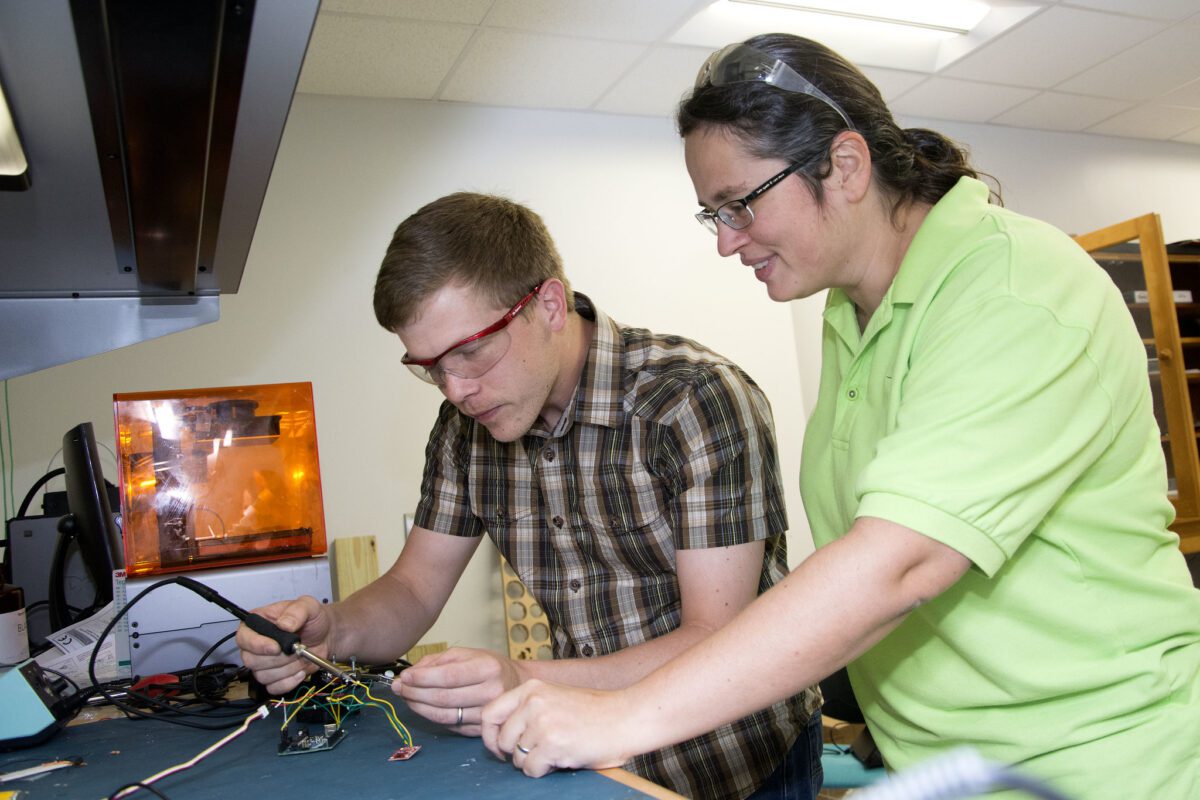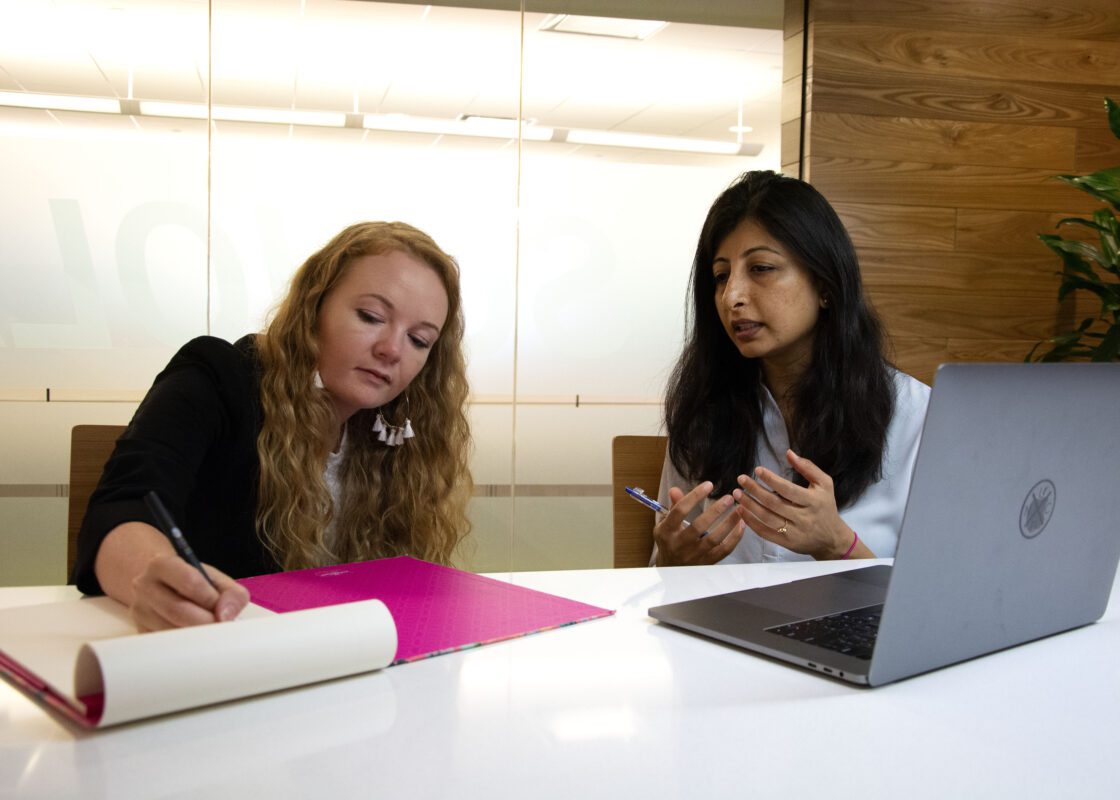Make a Difference
Become a mentor
Together, Kenan Fellows and mentors develop strategies for turning the three-week internship into effective teaching tools and educational resources that can be implemented in classrooms, as well as shared with other educators across the state and nation.
This one-of-a-kind collaboration offers an enriching experience not only for the fellows but also for the mentors, who gain a stronger understanding and appreciation of the K–12 education profession.

The Role of the Mentor
Mentors offer lab or industry experience to introduce fellows to the latest developments and technologies as well as provide opportunities for networking and continued partnerships.
Participation in the fellowship provides mentors with the opportunity to contribute to the depth and relevance of instruction at the K-12 level, as well as raise awareness about local careers and opportunities for students.
The mentor shares valuable skills and insights on the importance of the teacher’s role in preparing students for future study and work.
Getting Started: The Internship
The summer internship is a centerpiece of the Kenan Fellows Program for Teacher Leadership. Typically, the internship is three weeks, 40 hours per week. Prior to the internship, mentors partner with Kenan Fellows Program staff to review applications, interview finalists and select the best educator for their project. Once the fellowship has been awarded, the mentor will arrange a time to discuss the logistics for the internship with the fellow such as scheduling, security, parking, etc.
Week 1: Orientation & Integration
During the first week, the lead mentor will introduce the fellow to key staff members, provide a tour of the facility, give an overview of the organization and arrange for any training. Mentors and fellows discuss the connections between the workplace and the classroom and begin exploring ideas for how the teacher will bring this experience to students. Once the fellow and mentor have established their mutual goals, they can shape the schedule for the remainder of the internship.
Week 2: Collaboration
Ideally, the teacher is offered a variety of experiences including shadowing or interviewing staff members in different departments, and opportunities for hands-on learning. Mentors often invite the fellow to staff meetings and other gatherings to help them get acclimated to the culture of the organization as they begin to design their product. Mentors allocate time throughout the internship to discuss progress and address questions or concerns.
Week 3: Transformation
& Finalization
The final week of the internship allows time for reflection. Mentors and fellows typically discuss lessons learned from the internship, brainstorm ways they can continue to partner and make plans for the mentor to visit the teacher’s classroom or arrange a field trip for the students to visit the mentor’s organization. By the end of the internship, the fellow and mentor should have a more concrete plan for how the teacher will translate this experience to the classroom and/or the community.
Capstone Project
The fellow’s capstone project is a joint effort between the mentor and the fellow. The mentor provides expertise and content based on their research and or industry expertise. The fellow ensures that the final product is grade-level appropriate and supports the North Carolina Standard Course of Study. Together, the team works to produce lessons that are relevant and engaging.
These may be curriculum projects that bring the excitement of cutting-edge science, technology, and industry practices or research into the K-12 classroom. Or the products can take the form of community engagement events or professional development for other educators. Some capstone projects have included delivering an educational product for the mentor organization.
Enduring Partnerships

The internship may be over, but the partnership between the fellow and the mentor organization is just beginning. Each fellowship is unique and offers different opportunities for collaboration in the future. Mentors are encouraged to stay in touch with their fellow and invite them to future corporate or industry events that may be of interest.
Often fellows will become an advocate for the industry where they intern. This can lead to lasting community partnerships with local educators who are teaching the next generation.
“Together, we are creating a bridge between our school kids and a future where they understand, use, shape, and benefit from science and technology.”
Arlan Peters, mentor, Novozymes
Ready to partner with us? Contact Mark Townley at matownle@ncsu.edu.